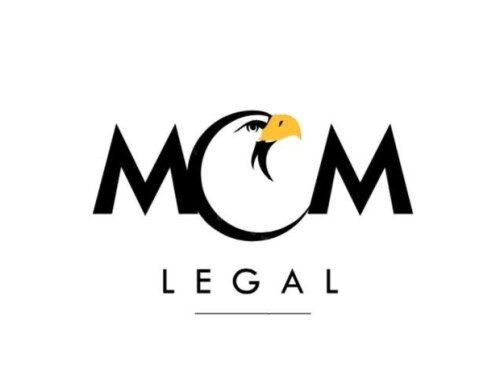Best Restructuring & Insolvency Lawyers in Zimbabwe
Share your needs with us, get contacted by law firms.
Free. Takes 2 min.
Or refine your search by selecting a city:
List of the best lawyers in Zimbabwe
About Restructuring & Insolvency Law in Zimbabwe
Restructuring and insolvency law in Zimbabwe governs how financially distressed companies and individuals handle their debts and assets. This area of law provides mechanisms for both corporate entities and individuals to reorganize, pay off or discharge debts, and, where applicable, liquidate assets to satisfy creditors. In Zimbabwe, these processes are essential for promoting economic stability and enabling businesses or individuals to recover from financial hardship, or to exit the market in an orderly manner if recovery is not possible.
Why You May Need a Lawyer
A lawyer specializing in restructuring and insolvency can be critical in several situations. Common scenarios include businesses facing overwhelming debts and unable to meet financial obligations, individuals declared insolvent or bankrupt, companies seeking to reorganize assets to avoid liquidation, or creditors seeking to recover what they are owed from an insolvent debtor. A qualified legal professional can guide you through complex insolvency proceedings, ensure your rights are protected, and represent your interests in court or during negotiations with creditors. Lawyers also help ensure compliance with statutory timelines and procedures, which, if missed, may jeopardize your legal rights and recovery prospects.
Local Laws Overview
The key framework regulating restructuring and insolvency in Zimbabwe is primarily found in the Insolvency Act [Chapter 6:04] and related statutes such as the Companies and Other Business Entities Act [Chapter 24:31]. These laws set out the rules and procedures for voluntary and involuntary liquidation, judicial management, schemes of arrangement, and bankruptcy for individuals. The law provides for various options, including:
- Liquidation: The process where a company's affairs are wound up, and its assets sold to pay creditors.
- Judicial Management: Where a court appoints a judicial manager to temporarily run a struggling company to rehabilitate it or oversee its winding up.
- Schemes of Arrangement: Allowing companies to restructure debt or reorganize with creditor approval.
- Bankruptcy: Applies to individuals who are unable to pay their debts, allowing distribution of assets under the supervision of the court or appointed officials.
The courts, through the High Court of Zimbabwe, play a central role in overseeing and approving most restructuring and insolvency procedures. The law emphasizes fair treatment of creditors while providing mechanisms for debtors to either recover or orderly exit financial distress.
Frequently Asked Questions
What is the difference between insolvency and bankruptcy in Zimbabwe?
Insolvency generally refers to the inability of a company or person to pay debts as they fall due. Bankruptcy is a legal status specific to individuals declared by the court after due process, while companies undergo liquidation or judicial management when insolvent.
Who can initiate insolvency or restructuring proceedings?
Proceedings can be initiated by the debtor, creditors, or a court. For instance, creditors may apply to the court to liquidate a company that cannot pay its debts, or companies themselves may seek judicial management or enter into schemes of arrangement.
What is judicial management and when is it used?
Judicial management is a court-ordered process where a judicial manager is appointed to run a distressed company. The goal is to rehabilitate the company so that it can continue operating or, if not viable, to facilitate its winding up.
Can an insolvent individual or business recover?
Yes, depending on the circumstances. The law provides for restructuring mechanisms such as schemes of arrangement for companies or debt rehabilitation plans for individuals, which can enable recovery if viable.
How are creditors paid during insolvency?
Creditors are paid according to a statutory order of priority. Secured creditors are usually paid first from the proceeds of secured assets, followed by preferred creditors and then unsecured creditors.
What protections does the law offer to debtors?
The law provides some protections, such as an automatic stay on legal proceedings in certain cases, and procedures for fair distribution of assets, but also contains provisions enabling asset recovery or investigation against fraudulent conduct.
What is a scheme of arrangement?
A scheme of arrangement is a court-sanctioned agreement between a company and its creditors or shareholders to restructure debt or reorganize assets, often involving new payment terms or restructuring of obligations.
Are there alternatives to liquidation?
Yes, alternatives include judicial management, schemes of arrangement, or informal negotiation and restructuring agreements between the debtor and creditors.
What role does the High Court play in insolvency?
The High Court of Zimbabwe oversees and approves most insolvency proceedings, including liquidation, judicial management, and schemes of arrangement, ensuring compliance with procedural and substantive legal requirements.
How long does an insolvency process typically take in Zimbabwe?
The duration varies depending on complexity, size of the business or estate, and whether disputes arise. Processes like liquidation can take several months to years, while schemes of arrangement or judicial management timelines depend on the specifics of each case.
Additional Resources
For further assistance and information regarding restructuring and insolvency in Zimbabwe, consider the following resources:
- High Court of Zimbabwe: The main judicial authority overseeing insolvency matters.
- Office of the Master of the High Court: Involved in administration of insolvent estates and court processes.
- Ministry of Justice, Legal and Parliamentary Affairs: Regulatory guidance on relevant statutes.
- Law Society of Zimbabwe: For finding qualified legal practitioners experienced in insolvency.
- Zimbabwe Revenue Authority (ZIMRA): Should be consulted for tax and compliance issues in insolvency.
Chartered accountants and insolvency practitioners also provide crucial support during restructuring and liquidation processes.
Next Steps
If you believe you may be facing financial distress or require assistance with restructuring or insolvency, consider the following steps:
- Gather and organize financial records, contracts, and correspondence related to debts and assets.
- Contact a qualified lawyer or an insolvency practitioner for a comprehensive legal assessment of your situation.
- Discuss with your advisor the possible options, including voluntary restructuring, judicial management, or liquidation, and understand the associated consequences.
- If legal or court action may be necessary, ensure compliance with timelines and required documentation to protect your interests and rights.
- Stay informed and proactive. Early action often leads to better outcomes.
Seeking professional legal and financial guidance is the most effective way to navigate the complex processes involved in restructuring and insolvency in Zimbabwe.
Lawzana helps you find the best lawyers and law firms in Zimbabwe through a curated and pre-screened list of qualified legal professionals. Our platform offers rankings and detailed profiles of attorneys and law firms, allowing you to compare based on practice areas, including Restructuring & Insolvency, experience, and client feedback.
Each profile includes a description of the firm's areas of practice, client reviews, team members and partners, year of establishment, spoken languages, office locations, contact information, social media presence, and any published articles or resources. Most firms on our platform speak English and are experienced in both local and international legal matters.
Get a quote from top-rated law firms in Zimbabwe — quickly, securely, and without unnecessary hassle.
Disclaimer:
The information provided on this page is for general informational purposes only and does not constitute legal advice. While we strive to ensure the accuracy and relevance of the content, legal information may change over time, and interpretations of the law can vary. You should always consult with a qualified legal professional for advice specific to your situation.
We disclaim all liability for actions taken or not taken based on the content of this page. If you believe any information is incorrect or outdated, please contact us, and we will review and update it where appropriate.
Browse restructuring & insolvency law firms by city in Zimbabwe
Refine your search by selecting a city.














